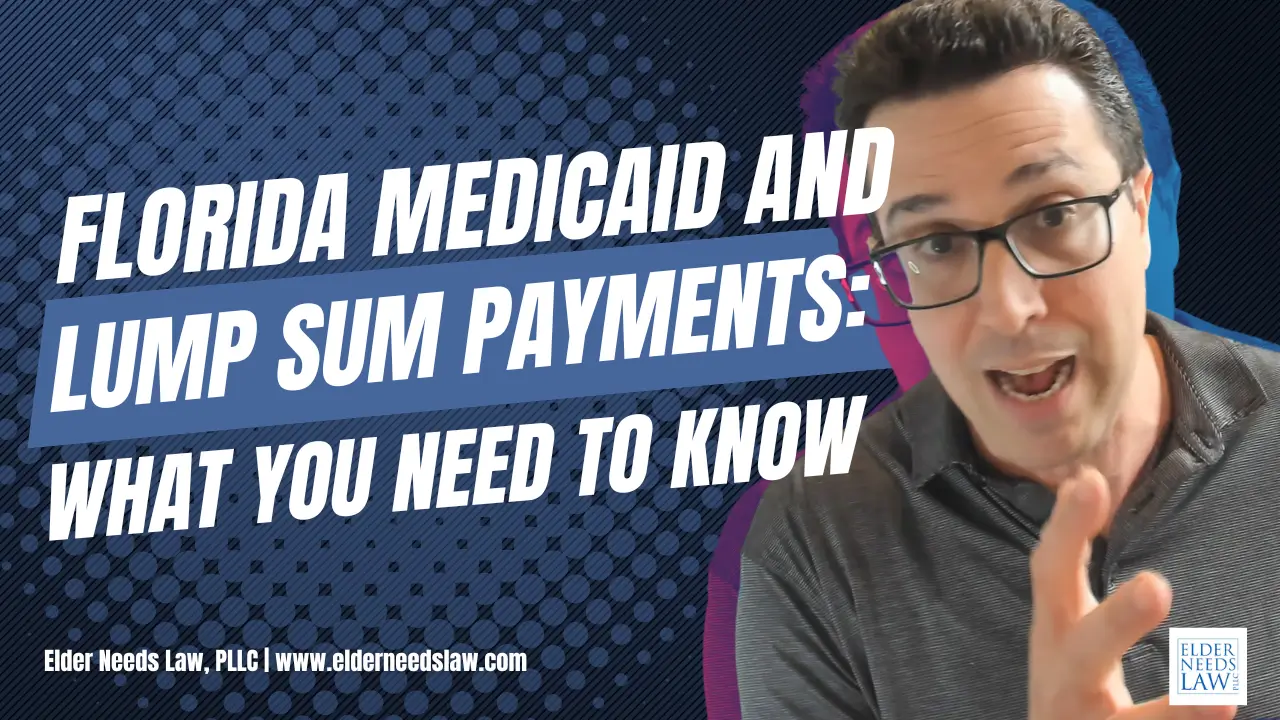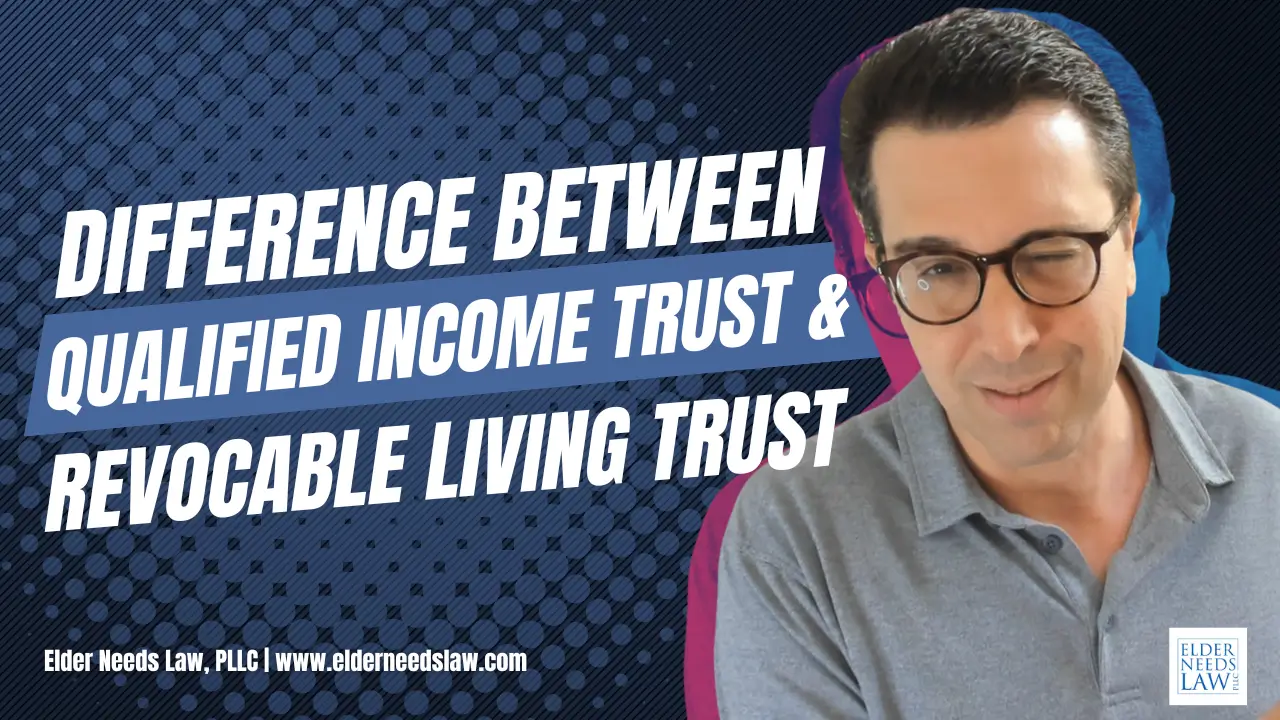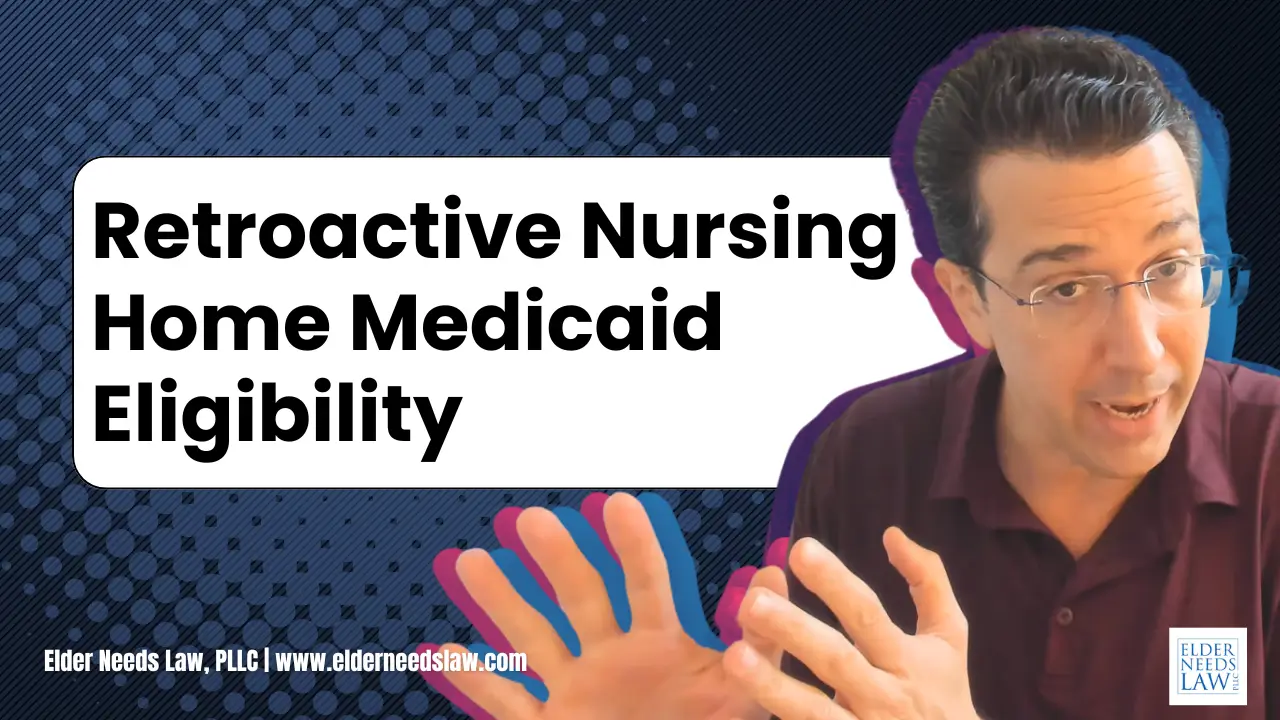Florida Medicaid and Lump Sum Payments: What You Need to Know

Watch our video explanation below:
Receiving an unexpected check from the government can feel like winning the lottery – until you remember you're on Medicaid. If you receive Medicaid benefits in Florida, particularly for long-term care at home or in a facility, that celebration can quickly turn to panic when you realize you need to maintain assets at or below $2,000 every single month.
But here's some welcome news: Florida has special rules for certain types of lump sum payments that can give you breathing room to handle these windfalls properly.
The Good News About Government Payments
When it comes to lump sum payments from Social Security or tax refunds from the IRS, Florida Medicaid recipients get special protection that doesn't apply to other types of lump sum payments. This means the rules are completely different than if you received money from selling your home, a personal injury settlement, or an inheritance.
Social Security Lump Sum Payments: You Get Nine Months
If you receive a lump sum payment from Social Security – whether it's from SSI (Supplemental Security Income) or SSDI (Social Security Disability Insurance) – you have nine months to spend that money without it counting against your $2,000 asset limit.
These payments typically happen when:
- Your disability application was delayed during processing
- You had to appeal a denial and ultimately won
- Social Security owes you retroactive payments from when you first applied
The nine-month countdown starts from the month you receive the payment. During this time, the lump sum won't jeopardize your Medicaid benefits as long as you spend it down within the timeframe.
IRS Tax Refunds: You Get a Full Year
Tax refunds from the IRS come with even better protection – you have twelve full months from the date you receive your refund to spend it down. This applies when the IRS determines you overpaid your taxes and sends you a refund check.
What This Means for Your Medicaid Benefits
During these protected timeframes, your bank account can show more than $2,000 without triggering a loss of benefits. However, you must be prepared to explain the source of these funds if questioned during your Medicaid renewal process.
When Medicaid sees a higher balance in your account, they may raise a red flag. You'll need to document that:
- The money came from Social Security or the IRS
- You're within the allowable timeframe to spend it down
- You're following Florida's specific rules for these payments
Planning Your Spending Strategy
Most people won't receive such large amounts from Social Security that they can't spend them down within nine months. Similarly, most tax refunds can be managed within the twelve-month window. However, if you do receive a substantial amount, you'll want to develop a strategic spending plan.
Some people choose to:
- Pay down debts
- Make necessary home improvements
- Purchase pre-need funeral arrangements
- Buy items they'll need for their care
- Make purchases that improve their quality of life
When Other Lump Sum Rules Apply
Remember, these favorable timeframes only apply to Social Security payments and IRS tax refunds. If you receive money from other sources – such as:
- Inheritance
- Personal injury settlements
- Sale of your home
- Insurance payouts
- Lottery winnings
You won't have these extended timeframes. In those situations, you'll need immediate planning to protect your Medicaid benefits.
The Importance of Proper Documentation
Whether you're dealing with Social Security payments or tax refunds, documentation becomes crucial. Keep records of:
- The original payment and its source
- The date you received the funds
- How you're spending the money down
- Any correspondence with Medicaid about the payment
This documentation protects you if questions arise during your renewal process or if Medicaid conducts a review of your case.
Don't Navigate This Alone
While these rules provide helpful protection, they can still feel overwhelming when you're trying to manage your benefits and plan your spending. The stakes are high – making the wrong move could jeopardize the Medicaid benefits you depend on for your long-term care.
If you've received a lump sum payment from Social Security or the IRS, or if you're facing questions about how to handle these funds while maintaining your Medicaid benefits, professional guidance can make all the difference. An attorney who focuses on Medicaid planning in Florida can help you create a spending strategy that maximizes your benefits while staying within the rules.
Additional Resources
For more detailed information about Medicaid planning in Florida and protecting your benefits, consider these resources:
Our Website: elderneedslaw.com
Medicaid Planning Resources: medicaidplanninglawyer.com
Our Book: "Medicaid: How to Pay for Some of Your Long-Term Care Expenses" - Available on Amazon
Take Action Today
If you've received a lump sum payment from Social Security or the IRS, don't wait until the last minute to address it. While you have months to handle the situation, starting early gives you more options and reduces stress.
Remember, the rules for Medicaid and lump sum payments can be complex, and Florida's regulations have specific requirements that must be followed precisely. What works in other states may not apply here, and small mistakes can have big consequences for your benefits.
Getting the right guidance now can help ensure your Medicaid benefits remain secure while you make the most of your unexpected windfall. After all, these payments are meant to help improve your situation – with proper planning, they can do exactly that without putting your benefits at risk.







